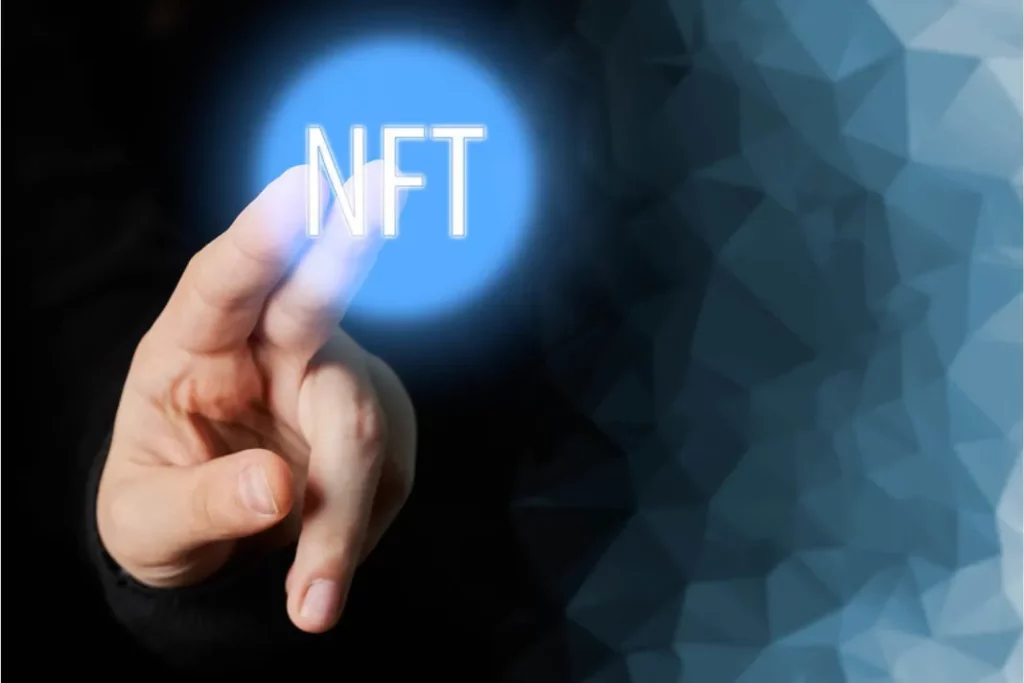In the crypto world, one of the newest crazes is the NFT, and it seems like everyone is either buying or trading it. It may be unclear that bitcoins are non-fungible tokens, but this simply means that they contain something unique that cannot be exchanged for another of the same worth. It doesn’t matter which specific Bitcoin tokens you have if you only have one in your wallet because they all always have the same worth. A non-fungible token, on the other hand, can be a one-of-a-kind piece of information that you cannot easily exchange or own more than one of.
These digital assets are preserved eternally in the Blockchain and can be expanded upon or changed without sacrificing any of their original integrity.
If you’re a crypto artist, you already know how challenging it can be to market your NFT work. If you are an NFT collector, it might be also challenging to sell your NFT. We’ll talk about some advice in this blog article to help you sell your artwork or collection pieces like a boss!
OpenSea
The OpenSea system allows NFTs (non-fungible tokens) to be sold in three different ways. It is possible that the seller sets his price, wait for buyers to offer their price, or even launches a cryptocurrency auction.
Setting a price
Fixing a price helps circumvent one of the dangers of auctions: selling an NFT at a price lower than its value. But this is where the problem arises. Indeed, what is the value of your NFT?
To assess the value of an object, you have to look at the selling prices of similar products. For example, the price of a 3-room apartment located in a village will be compared to another 3-room apartment in a similar location.
This method can also be used with certain types of NFTs. If an NFT is in a series like CryptoPunks, recent sales of similar CryptoPunks can help establish an accurate price.
For unique NFTs, the price is set according to demand. The idea is to set a price slightly above what the market can bear, to eventually let a very interested buyer accept this price. In the event that the market seems to be turning away from the property because of its overvaluation, it is always possible to reduce the price.
Accepting a price from a buyer
As an NFT owner is not obligated to set a fixed price. You can put an NFT up for sale and wait for people to offer it.
It is advisable to accept an interesting offer quickly because they all have a limited duration. On OpenSea for example, those can be canceled at any time, with 10 days of expiration. However, it is pretty difficult to miss an offer. As, indeed, notification systems are in place. In the case of OpenSea, emails are sent for each offer received.
NFT auctions
If there is a strong demand for an NFT, it may be possible to set up a Dutch auction. These auctions start with a high price that drops over time. The first person to bid wins. Participants tend to act quickly, as the probability of not winning is high. The risk of the price falling too low is a possibility to be taken into account.
Seeling your NFTs – FAQs
Is the sale of NFTs open to everyone?
Yes, anyone can sell an NFT. All you need is an account on a website or NFT platform with trading possibilities. These platforms will hold the digital asset in their wallets and then facilitate the exchange when a buyer comes along.
Is it profitable to sell NFTs?
It depends on a lot of facts! If a buyer is willing to pay an attractive price, then yes, NFT selling can be profitable. However, there is no guarantee that a buyer will be found, or that the price offered will be satisfactory.
Previously, a set of digital creators created an NFT collection consisting of digital artworks and other forms of digital collectibles. They use NFT marketplaces and NFT platforms to market and sell every non-fungible token in their collection. The initial sale price is set by the digital creators. It is noted that in most NFT platforms, there is a secondary market to sell and buy digital works of art. The Bored Ape Yacht Club is a great example of a profitable NFT collection.

How much does it cost to sell an NFT?
Most NFT platforms and websites charge a small commission for each transaction. It is usually a percentage of the total sale price, which is between 1 and 5%.
Is selling NFTs easy?
Yes, it is easy to sell NFTs. It is possible to sell them through an online platform or directly to a buyer.
Is it possible to make money selling NFT digital art?
Yes, it is possible to make money selling NFT art. Indeed, many people have for resources the sale of digital art in the form of NFT. There are several ways to achieve this:
1. Sell your NFTs on platforms like OpenSea or super rare.
2. Create a website or blog dedicated to NFTs and monetize it through advertising or affiliate links.
3. Offer consulting services related to NFTs.
4. Write a book or create an online course on NFTs.
5. Make presentations on NFTs at events or conferences.
6. Invest in NFT projects and companies.
7. Offer NFE-related services such as storage or market analysis.
8. Create an NFT-based business.
How much do NFT creators earn?
There is no single answer to this question, as there is no fixed price for creating an NFT. Some NFT creators charge a flat fee for their work, while others choose to auction their creations. Still, others prefer to offer their NFTs for free. Ultimately, it’s up to the digital artist how much they want to charge, or not, for their NFT creations.
Do you need to have money to sell NFT?
No, you don’t need to have money to sell NFTs. All you need is an Internet connection and a digital wallet or crypto wallet that supports the sale of NFT.
First of all, to sell NFTs for profit, it is important to study the market. There are a number of online resources that can help determine the value of your NFTs. It is important to remember that values can fluctuate over time.
Secondly, when selling NFTs, one should not overlook the costs associated with the sale. In most cases, a small percentage of the total sale price will be charged as a fee. It must therefore be taken into account in the overall profit margin.
Finally, it is also important to consider the tax implications of selling NFT. In some jurisdictions, profits from the sale of NFTs may be subject to capital gains tax. Before selling NFTs, it is important to consult a tax advisor to ensure compliance with all applicable laws.
How to sell NFTs on Opensea?
OpenSea is the largest NFT trading platform in the world. It is possible to sell your NFTs thereby creating a store and putting your items up for sale. When someone buys, the owner receives payment in Ether (ETH).
The OpenSea Help Center helps beginners to create a shop or list its objects. There are detailed guides and FAQs that walk you through the process.
Once the store is created, it must be promoted on social media. It is possible to join Discord channels for example.
Is the sale on an NFT platform free of charge?
OpenSea, for example, does not charge any fees to create, list, or sell an item. Its compensation model is simple: it takes 2.5% from each transaction made on its platform.
There are also other marketplaces for selling and buying NFTs (non-fungible tokens) like Raible, SuperRare, or Axie Marketplace.
How to sell your ideas in the form of NFT?
Turning an idea into an NFT is a great way to protect your intellectual property and make sure you get paid for your work. The process is simple:
1. Create an idea in a digital file format, such as an image, video, or text document.
2. Choose an NFT marketplace to list the item for sale.
3. Set a price for the NFT.

What are the benefits of selling NFT digital assets?
There are many benefits to selling your work as an NFT, including:
1. It is possible to set your own price and earn more money for your work.
2. NFTs are unique and may not be reproduced. The work is original and precious.
3. Selling work as NFT allows you to keep control over how it is used and distributed.
4. NFTs are stored on blockchain technology, so they are permanent and cannot be deleted or lost.
5. The audience is global.
What is the hardest part of selling NFTs?
Most NFTs have no intrinsic value. They are digital assets that can be easily duplicated. So when people see an NFT for sale, they may be dubious about its worth. The chosen NFT platform provides access to people who intend to purchase NFTs and own them. The onus is on digital artists to sell their digital assets and digital artworks.
That’s why it’s so important to be clear about what an NFT is, what it represents, and what are the community-related side benefits.
If you can convince people that an NFT has value, you will be able to sell it for a good price.
Do you want to know more? Explore our other Cryptocurrency articles
Are you interested in purchasing an NFT? In this case, we recommend you to read the article – How to Buy an NFT- An Easy Guide
Shall you want to explore your banking options related to cryptocurrency and start your NFT journey, do not hesitate to book a free consultation with our friendly team.
Disclaimer
Widelia and its affiliates do not provide tax, investment, legal or accounting advice. Material on this page has been prepared for informational purposes only, and is not intended to provide, and should not be relied on for, tax, investment, legal or accounting advice. You should consult your own tax, legal, and accounting advisors before engaging in any transaction. Please consult https://widelia.com/disclaimer/ for more information.









